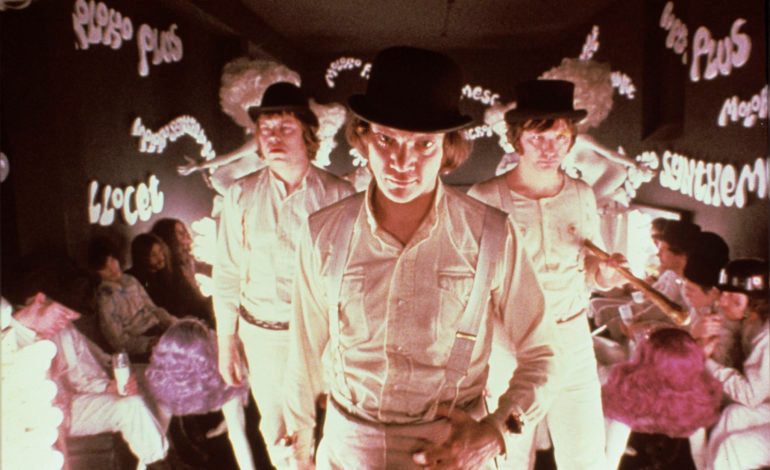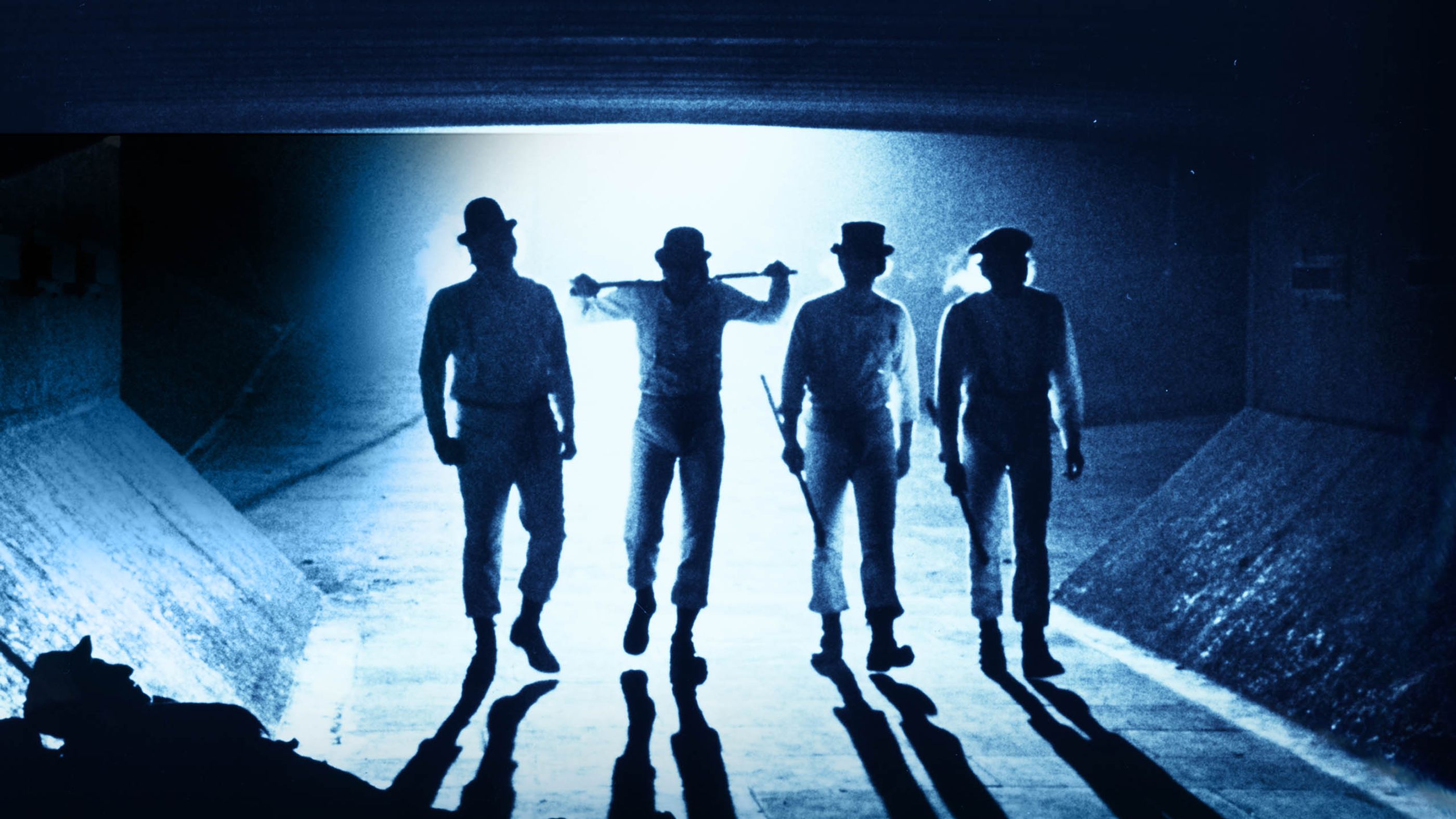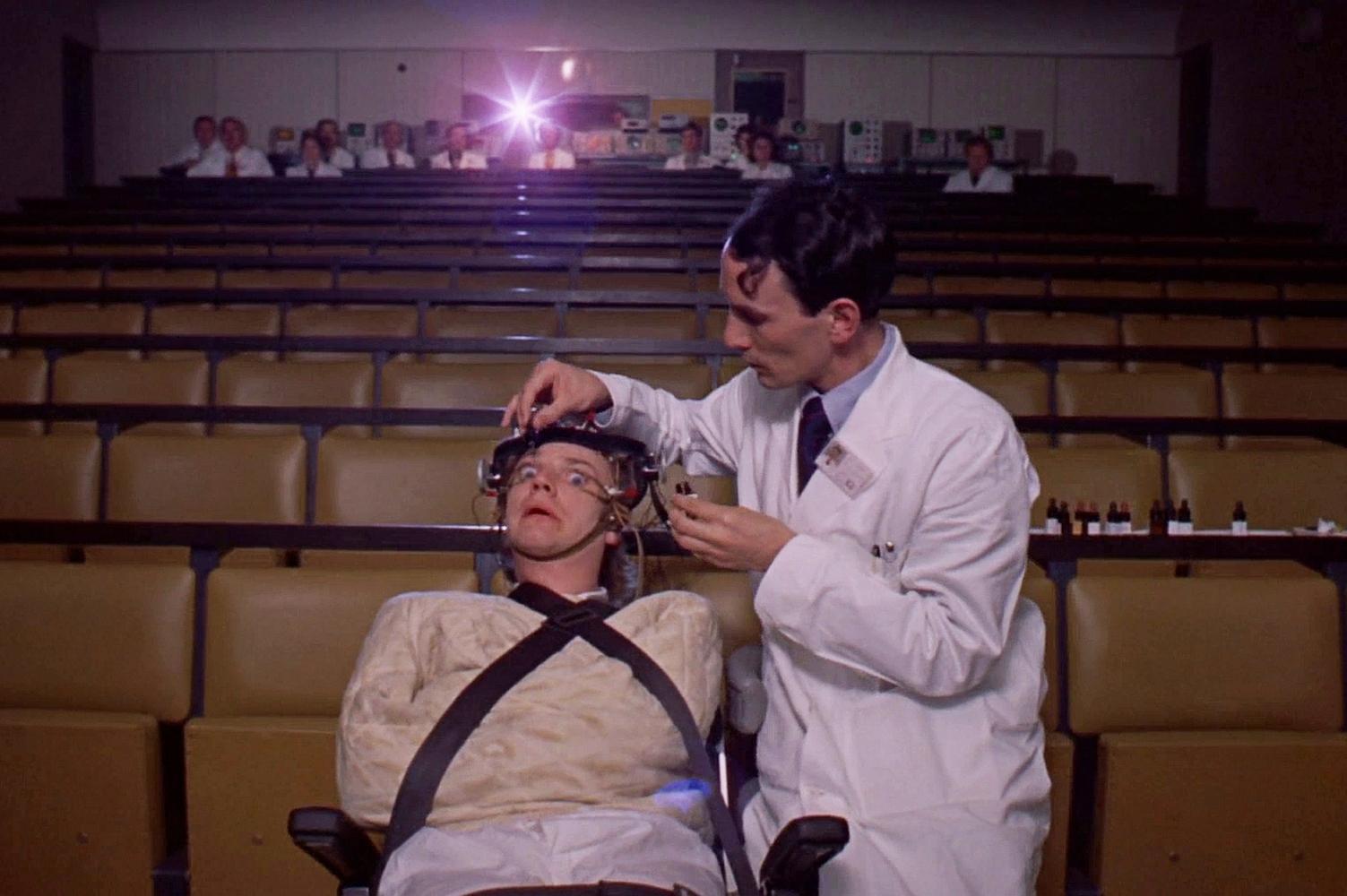

Dressed in black humor and Beethoven, Stanley Kubrick’s A Clockwork Orange (1971) deserves its claim to fame as one of the greatest films of all time for its borderline-sound philosophical arguments and spectacular artistic feats. “Controversial” is too light a term to describe a film that features a marginalized youth fancying sex, violence, and classical music as the protagonist, whose road to recovery involves an unsuccessful conversion therapy linking his fondness for music with his anything-but-victimless crimes. Trying to justify the wrongs Alex (Malcolm McDowell) commits is hard enough, but keeping in mind the “fun” fact of the actor’s improvised “Singin’ In The Rain” idea during the infamous rape scene equates an X-rating AND a “keep out” sign. Subjecting audiences to the same treatment endured by England’s most maniacal teenager is no easy feat, but somehow Kubrick got away with this dirty trick – Gene Kelly’s feel-good song of the namesake musical will never sound the same.
The predominantly negative reactions to A Clockwork Orange’s seemingly amoral representations of a society gone wrong unfortunately rely on surface-level judgments, ultimately neglecting the film’s true intentions. The title itself represents the innate goodness of individuals amidst the extraneous forces which strive to distort this nature. Anthony Burgess, author of the novel A Clockwork Orange, likened its title to a person who “has the appearance of an organism lovely with colour and juice but is in fact only a clockwork toy to be wound up by God or the Devil or the Almighty State.” In other words, the apparent freedom of choice by which Alex and his gang commit unspeakable acts is actually a reflection of the lack of moral choice that renders humans inculpable, with respect to such actions.


A Clockwork Orange further ensures vindication by suggesting that nihilism has crept up on the film’s setting – an unknown future in which all religious and moral principles are abandoned, thus exposing life’s meaninglessness. This provides the perfect breeding ground for such “ultra-violence” antics that Alex and his Droogs frequently engage in. Not only is this absence of a concrete setting made evident through the depiction of an unfamiliar dialect and bizarre furnishings, but the panning camera movements and long tracking shots also contribute to this cold, unfeeling environment. Such overwhelming anguish over the absurdity of existence, naturally following from the nonexistence of normative laws, takes on an almost physical presence in the form of ultra-wide lens shots, particularly when juxtaposed with the close-ups of Alex. Haunted by the multicolored interiors of dystopian England, A Clockwork Orange’s artificial palette achieves an almost supernatural aura that deliberately fails to draw the line between reality and fiction, heightening and nearly justifying the very sequences for which the film is maligned.
By translating the nihilism inherent in the film’s setting to Alex’s instinctual and care-free spirit, the ironic characterization of Alex as a child-like criminal spurred on by himself and unreactive to any outside forces fits perfectly into this cynical world. Despite the many efforts and techniques to move Alex along the path to moral progress, his inner thoughts and desires remain fixated on sex and violence. The redundant flagrancy with which Alex conducts violent acts, all without any clear vision in mind, is chillingly captured by the repeated scenes of him knocking on the doors of unsuspecting households who later undergo unimaginable torture. Friedrich Nietzsche, the German philosopher responsible for clarifying nihilism without expressly endorsing it, curiously labeled the concept as the most “uncanny” of guests standing at the door, solidifying his already heavy influence on Kubrick’s filmography.


At the end of the day, Alex is neither good nor bad by nature. He is a product of his environment, influenced by the politically powerful who use him for ulterior motives. The epitome of this struggle is represented by the induction of the Ludovico treatment, a process in which the doctors assure that the associative pain and suffering Alex experiences is necessary to his reformation. Ironically, the prison chaplain protests against this method’s capitalization on physical fear, claiming that Alex’s human nature has been debased because this technique has stripped away his ability to willfully choose good over evil. Alas, the process through which Alex becomes the victim of the crimes he once committed contributes to the final revelation that he remains spiritually unreformed, for Alex was always “good” from the start.
